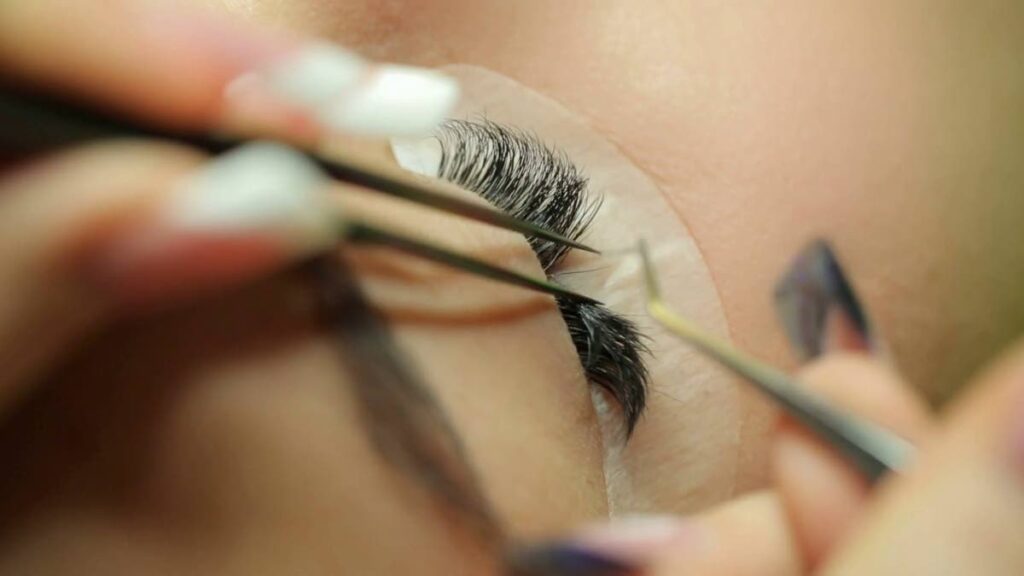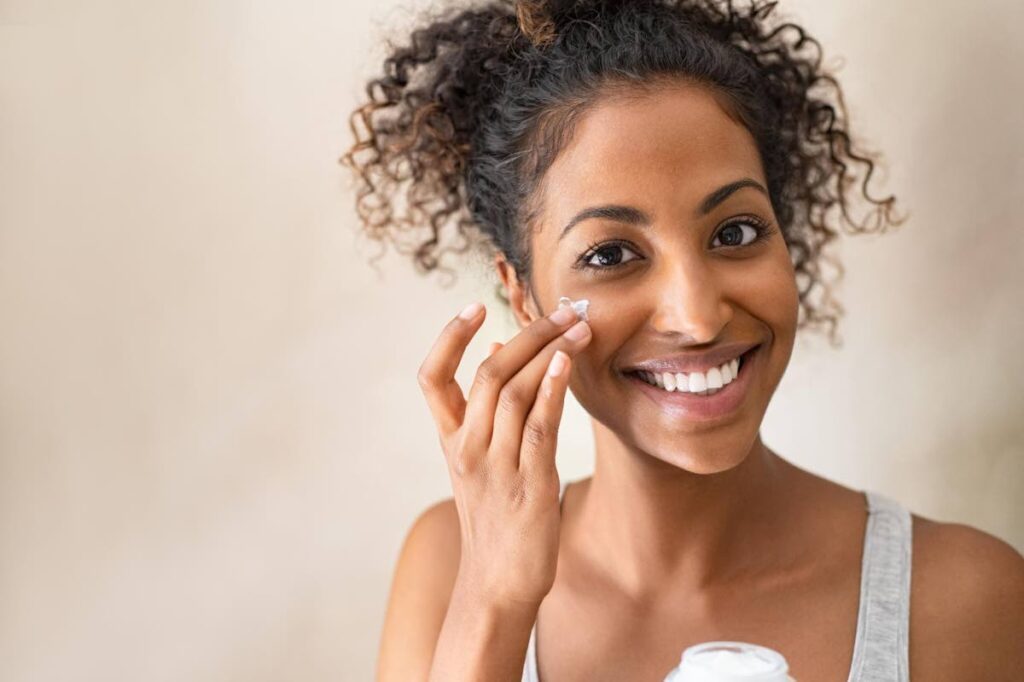Unveiling the secrets of radiant skin

BAVINA SOOKDEO
This Carnival when you revel in your vibrant costume to the infectious beat, don’t forget to protect your body’s largest organ – your skin.
Skincare professional Dr Nadira Rambocas unveiled essential tips and advice to ensure your skin is prepped and pampered for this lively celebration.
Rambocas’ journey into skincare was inspired by her experience in an emergency department, where she witnessed the importance of managing skin disorders.
Armed with a diploma in aesthetic medicine, laser studies certification, a master’s degree in dermatology, and a diploma in cosmetic sciences, her expertise spans a wide range including skin diseases and enhancement.
Before diving into skincare specifics for Carnival, Rambocas provided a brief overview of the skin and its many functions.
“The skin,” she said, “is versatile and is considered the largest organ in the human body.”
It has various functions, including sensation, protection from environmental factors such as loss of moisture, sun damage, mechanical/chemical trauma and infection, temperature regulation, maintaining fluid balance, producing Vitamin D and immunologic function, including protection against allergens and wound repair.
Rambocas explained that a basic skincare routine involves cleansing, moisturising, and sun protection. She recommended a morning routine of cleanser, moisturiser and sunblock, and an evening routine of cleanser and moisturiser.
Asked about the essential steps people should follow to properly care for their skin, especially in the context of preparing for Carnival, and how they can incorporate good skincare habits into their daily routine to promote long-term skin health, Rambocas said, “Due to the rigours of Carnival, with excessive alcohol, sun exposure, sweat and possibly makeup, all persons should have some actives included in their regime above. This includes the use of antioxidants such vitamin C and E, silymarin, niacinamide, ferulic acid, resvertrol, etc.
“These provide protection from free radicals when used in conjunction with sunblock. Some of these ingredients also have additional benefits of helping with acne, dryness, and hyperpigmentation.”
For the night, she recommends alpha hydroxy acid, retinol/retinoid or the plant alternative bakuchiol, which may be helpful in increasing cell turnover, treating acne, collagen synthesis and assisting in hyperpigmentation.
“This combination can be used long term and considered maintenance skin care,” she pointed out.
If you’re wondering how to determine your skin type and why it is important for skincare, she explained, “Skin care specialists normally use the Fitzpatrick Classification, which ranges from I to VI, which is based on the amount of melanin pigment in the skin; the tanning ability; and potential of the skin to burn.
“However, to determine if the skin is normal, dry, oily, combination or sensitive, the skin should be washed with a gentle cleanser and left bare for the entire night. In the morning, if the entire face feels the same then the facial skin is considered ‘normal’; if the facial skin is instead cracked and tight, then it is considered ‘dry.’ However, if only the T-zone is oily, then this is regarded as combination skin. Oily facial skin is determined if the entire face is oily. Conversely, if the skin burns/stings, becomes red, swollen, itchy, dry with certain products, environmental factors or hormonal changes then the skin can be considered sensitive/reactive.”
Sun exposure
Considering the outdoor nature of Carnival celebrations, what advice does the doctor have to offer for protecting the skin from the sun?
“During the festivities of Carnival and the exposure of the skin to dust, sweat, dirt, pollution and other organisms, it may be worthwhile to consider applying a product underneath sunblock that is considered anti-pollution (ceramides or containing anti-oxidants – vitamin C and E, silymarin, niacinamide, ferulic acid, resvertrol) to protect the skin and minimise damage after sun exposure.”
She explained the difference between sunscreen and sunblock.
“Sunscreens are usually of chemical origin. Sunblock, however, is usually of mineral origin and consists of zinc oxide or titanium dioxide and covers the entire UV spectrum.
“Sunblock is a must. Use of antioxidants under sunblock, applying sunblock half an hour prior to sun exposure and reapplying every two to three hours is helpful in preventing sun damage, which can result in sunburns, sunspots and accelerated skin ageing.”
Rambocas spoke about skin cycling and the use of skin-barrier maintenance products.“In 2023, skin cycling became popular (with the) use of actives (products containing retinols and alpha hydroxy acids) on particular days, with periods of recovery after to allow the skin to recover/adjust.
“In addition, skin barrier maintenance products containing ceramides, hyaluronic acid and prebiotics have also been trending, with the regular use of products that replenish the lipid bilayer of the skin, which aids in promoting healing, eliminating dryness, redness, wrinkles.”
Sunblock contouring has also become popular, but Rambocas advised against it.
“Sunblock contouring, as its name implies, is where sunblock is only applied to certain areas of the facial skin. This is harmful, as the sun-exposed areas are vulnerable to the harmful UVA and UVB rays.”
Rambocas also dispelled the misconception that sunblock is unnecessary indoors.
“Most people are of the belief that sunblock should not be worn indoors. Sunblock should be worn every day, indoors and outdoors. UV exposure is cumulative and can also occur through windows, lightbulbs and electronic devices.”
Body paint
Proper hydration is also important for maintaining healthy skin. Rambocas emphasised proper hydration by drinking lots of water and electrolytes before, during and after Carnival.
“This,” she said, “assists in skin hydration, preventing dryness, and premature ageing. Eating a balanced diet with lots of fruits, vegetables, nuts, would ensure an adequate supply of vitamins, zinc and omega oils...essential for minimising skin damage, promoting skin repair and maintaining a health glow.”
For those planning full-body painting for Carnival, Rambocas advised, “Perform a test dose of the body paint and barrier spray 24 hours prior to application. Cover only a small proportion of the body (and) ensure these body paints and barrier sprays are free from harsh chemicals such as heavy metals and formaldehyde to minimise the risk of allergic reactions, poisoning and chemical burns.”

As for removing body paint/makeup, she said it depends on if whether it is water- or alcohol-based.
“These are easily removed with makeup remover or micellar cleansing water. However, oil-based body paints/makeup usually have their own special removers that are also oil-based.”
During this time, many people use glues to attach hair extensions and and eyelashes – but what potential risks to the skin do these adhesives pose and does the doctor have any recommendations for choosing skin-friendly adhesives?
Rambocas said, “In most lash adhesives, cyanoacrylate is used. However, other ingredients such as formaldehyde and latex may be included in the lash adhesive formulation.
“All of these ingredients should be avoided, as they can irritate the skin around the eyes and cause allergies. Use of lash glues with polyacrylates is preferred, though these too can cause irritation, especially if they contain fragrances or other preservatives.”

Nowadays, she added, “Most wig adhesives contain acrylates/ethylhexyl acrylate, although these ingredients can cause allergic reactions as well.
“Products with latex or rubber should be avoided, as the risks of skin irritation and allergic reactions occur most often with these, and the bonding agent is more difficult to remove after.”
After-Carnival skincare
After the festivities, what should people include in their post-Carnival skincare routine to help their skin recover?
“After Carnival, the aim of any skin regime is to soothe and hydrate the skin,” Rambocas said. “Use of sunblock, antioxidants under sunblock (containing vitamin C and E, silymarin, niacinamide, ferulic acid, resvertrol) and hydrating products containing aloe, glycerin, hyaluronic acid, bisabolol, allantoin, colloidal oat or anti-inflammatory ingredients such as centella asiatica and green tea would aid in skin recovery.
“Avoiding actives containing retinols and alpha hydroxy acids one week prior to sun exposure and at least two weeks post-sun exposure, would be beneficial in minimising skin sensitivity and sun damage.”
For those with acne, eczema, or sensitivity, Rambocas advised avoiding certain ingredients and checking product labels for potential irritants.

“Use products that are oil-free (oils can cause allergies and clog pores), non-comedogenic, (and free of) fragrances (can cause irritation), ethanol (can cause drying), lanolin and propylene glycol (can result in allergies) cocamidopropyl betaine (a foaming agent can cause irritation),” she said.
“Retinols and retinoids can be used in acne, but should be avoided in sensitive skin and persons with eczema.
“There are many other dyes, preservatives, and chemical ingredients that can cause irritation, allergic reactions, trigger eczema and can be endocrine disruptors.
“Checking ingredient labels or seeking help with your skin care professional would be helpful in guiding your product use that would be appropriate for your skin type and cater for your individual needs.”
She pointed out that lifestyle factors like smoking and excessive sun exposure can also be detrimental to skin health.
“My two pet peeves are smoking and excessive sun exposure (we need ten minutes of the early-morning sun to build Vitamin D). Prolonged cigarette smoking and sun exposure can permanently damage the skin, causing excessive dryness, redness, hyperpigmentation and wrinkling.
“A balanced diet with adequate hydration, exercise, sunblock use, cessation of smoking and an appropriate skin care regime can maintain proper skin health.”
Rambocas encouraged people to remember to indulge in a skincare routine that reflects the care and love their skin deserves.


Comments
"Unveiling the secrets of radiant skin"